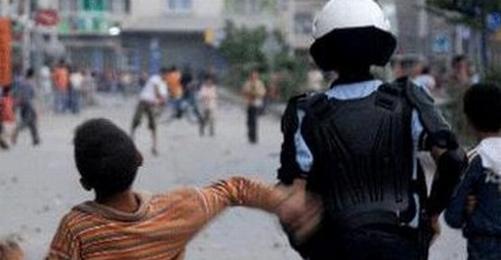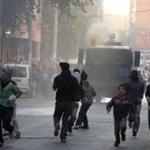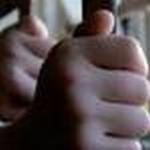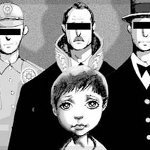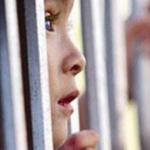The Turkish Human Rights Foundation (TİHV) and a number of other non-governmental organizations active in Diyabakır prepared a report on children and their families who were imprisoned on the basis of the Anti-Terror Law (TMK) and released later on due to according legal amendments. The NGOs studied the situation of the children in the Kurdish-majority city in south-eastern Turkey for a whole year.
According to the report, more than 4,000 children aged between 12 and 18 were taken into police custody and/or were kept in prison for the duration of between two months and four years.
One in three children abandoned education
Here are some of the issued highlighted by the report:
* 12 out of 30 children the NGOs established contact with after their release from prison abandoned school.
* The report also raised the question of how many children and juveniles would turn to the armed outlawed Kurdistan Workers' Party (PKK) after their experiences in custody and prison.
* Mustafa Malçok burned himself on 15 February.
* Some children are constantly being kept under observation by the police on their way to school, in the neighbourhood and on the street. After some time, this develops into harassment like saying "We will arrest you again" and into oppression such as saying "What are you doing on the street? Don't wander around or we will take you into custody".
* The families are anxious; they confine their children at home, send them to the military or let them do heavy jobs. The social life of these children is restricted.
* The judiciary became inclined to not to arrest but release the children subsequent to the legal amendments. However, the police continued to take children and juveniles who were walking on the street into custody. Ill-treatment in police custody and also at the moment the young persons are caught by the police has worsened.
"Children must be fully excluded from TMK"
The report is stating that children should be fully excluded from the scope of the TMK. Articles 220/6 (committing a crime on behalf of an organization without being a member of the organization) and 220/7 (knowing and willingly aiding and abetting an illegal organization) of the Turkish Criminal Law (TCK) should be lifted. Moreover, the report points to Law No.2911 that still defines "stones" as weapons. The NGOs demand this definition to be abolished. "Molotov" cocktails should be covered by Article 174 TCK on "unauthorized possession or transfer of hazardous substances".
Mass organizations, local governments and political parties have to define serious policies regarding children. Children and juveniles should have their own areas where they can express themselves. The media has to put works and studies related to children on the agenda, the NGOs proposed.
22 children died in the region within six months
The "Children Report" issued by the Human Rights Association (İHD) for the region of eastern and south-eastern Anatolia covering the first six months of 2011 revealed that 14 children and juveniles were killed by the police or the military and one child was injured. 15 children were wounded because of mines or undefined explosives, three children died. Two children were injured along the border and three were killed. The death of two further children left doubts about the reason for their death. 485 children were taken into police custody, 139 children were arrested.
18 children committed suicide, three children attempted to do so. One child was exposed to domestic violence. Five children died as the result of violence, abuse and rape; eight children experienced abuse, eight children were raped.
Family profiles
17 of the families that participated in the study were forced to leave their villages in the 1990s and hence migrated to the centre of Diyarbakır. 12 families lost a first degree relative in armed conflicts between the army and the PKK. 18 families have at least one or more relatives who were/are still imprisoned mainly for political reasons.
A part of the surveyed families make a living as working or retired civil servants or working or retired labourers. Another part of the families have an income from temporary work such as scrap-iron business, construction or the service sector.
12 families are living in a rented flat, four families live in a house provided by another family member and 14 families own their homes. Members of 11 surveyed families suffer from serious health problems (cancer, bullet injury, hepatitis, bronchitis, asthma etc.) caused by bad conditions in prison and police custody.
Points of attention
* The demonstrations where children and juveniles play the main role must be seen under the aspect of their political identity and should be interpreted as a way to open up particular areas where the children and juveniles can express themselves.
* A part of the children that left the region after having finished secondary education return to their province due to adaptive difficulty and discrimination. Some continue their education and others abandon school.
* Schools in the region have an insufficient infra structure. Children attend overcrowded classes. Discriminative policies within the education system create the risk of estranging the child from his/her hometown and school.
* Kurdish children have been deprived of their village, their mother language and their culture. The children suffer an obvious trauma caused by oppressive and rough treatment at primary school and by a dominant language that is taught by force. At the same time, the child is being exposed to a number of political, economic and social risks in the city.
* In Kurdish-majority provinces, 10,000 school-aged children work in seasonal jobs instead of going to school.
* The child's identity is being used as a yardstick in processes like his/her prosecution, police custody or imprisonment.
The report was prepared by the following institutions:
Human Rights Association; Diyarbakır Bar Association; Diyarbakır Medical Chamber; Justice for Children Group (ÇİAT); Health and Social Service Workers Union (SES) Diyarbakır Branch; Education and Science Workers' Union (Eğitim-Sen) Diyarbakır Branch; Diyarbakır Metropolitan Municipality Social Support Centre; Local Agenda-21 Youth Assembly; Sarmaşık Association for the Struggle against Poverty and Sustainable Development; Psychologists Initiative for Social Peace.




